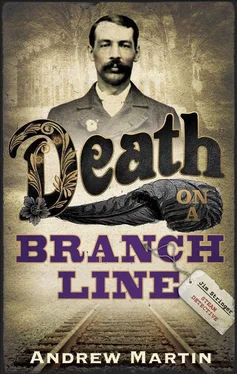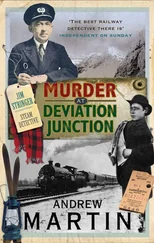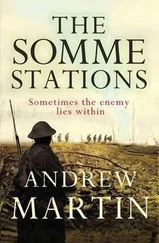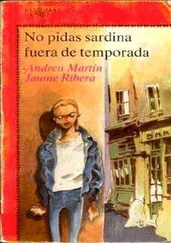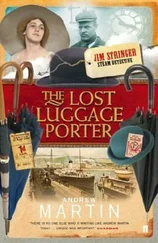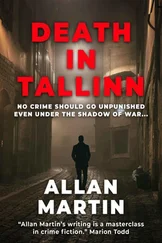Andrew Martin - Death on a Branch line
Здесь есть возможность читать онлайн «Andrew Martin - Death on a Branch line» весь текст электронной книги совершенно бесплатно (целиком полную версию без сокращений). В некоторых случаях можно слушать аудио, скачать через торрент в формате fb2 и присутствует краткое содержание. Жанр: Классический детектив, на английском языке. Описание произведения, (предисловие) а так же отзывы посетителей доступны на портале библиотеки ЛибКат.
- Название:Death on a Branch line
- Автор:
- Жанр:
- Год:неизвестен
- ISBN:нет данных
- Рейтинг книги:5 / 5. Голосов: 1
-
Избранное:Добавить в избранное
- Отзывы:
-
Ваша оценка:
- 100
- 1
- 2
- 3
- 4
- 5
Death on a Branch line: краткое содержание, описание и аннотация
Предлагаем к чтению аннотацию, описание, краткое содержание или предисловие (зависит от того, что написал сам автор книги «Death on a Branch line»). Если вы не нашли необходимую информацию о книге — напишите в комментариях, мы постараемся отыскать её.
Death on a Branch line — читать онлайн бесплатно полную книгу (весь текст) целиком
Ниже представлен текст книги, разбитый по страницам. Система сохранения места последней прочитанной страницы, позволяет с удобством читать онлайн бесплатно книгу «Death on a Branch line», без необходимости каждый раз заново искать на чём Вы остановились. Поставьте закладку, и сможете в любой момент перейти на страницу, на которой закончили чтение.
Интервал:
Закладка:
‘He was then’, said the Chief, ‘taken into a special body of men selected from all the railway companies, and charged with — ’
He stopped at this and looked over at Usher, and then the Chief seemed to begin all over again, saying:
‘Men and arms can be carried anywhere on rail — ’
‘And they will be, Stringer,’ Usher put in from the sofa. ‘Troops, provisions and materiel.’
At which — as Usher leant forward and put out his cigarette — I wondered whether this ‘ materiel ’ was the same thing as ‘material’.
‘I make no predictions as to the nature of any European war,’ Usher went on, ‘but the continental railways were laid out with an eye to military considerations and German railways, for example, are owned by the state.’
The thought seemed to agitate him to the point where he had to stand up.
‘They can hurl their army to any given point at a moment’s notice,’ he said, rising, ‘and we must be able to do the same. It is not necessary for you to have the full details, Stringer, but since you’ve thrust yourself forward so far, and on condition of absolute confidentiality…’
He walked over to the nearest mantel-piece and collected his own glass of whisky which stood next to my empty one. I had downed it in a single draught, and it had been fuelling my headache ever since.
‘A committee was formed,’ Usher continued, ‘and provided with imperial funds to formulate working notices — schemes of transportation — to be employed in the event of an emergency.’
‘Meaning a war with Germany?’ I put in.
‘There are other, equally dangerous possibilities, Stringer.’
‘Such as what, sir?’
There was a beat of silence, and then the fellow coloured up and grinned, looking almost girlish; I liked him for it, and I grinned back at him.
‘Imagine the complexities, Stringer,’ he went on, replacing his glass. ‘Offensive and defensive railway schemes to be created, supply depots to be nominated. The coaling of the home fleet to be accomplished — now how do you suppose that is to be managed in time of war?’
‘That’s to be done under heavy guard from Hull,’ said the Chief, lighting up a new cigar.
Usher was checked for a moment by this intervention of the Chief’s, whose nose looked different again with a cigar beneath it.
‘The schemes are constantly tested with practice mobilisations,’ Usher continued, ‘during which ordinary services are to be carried on as far as possible. The committee men work in the offices of their own companies and at a central co-ordinating office in London. They are few in number — kept to a minimum by the requirement of absolute secrecy — and the weight of work is very great. I am told they are all very brilliant, and with intellectual brilliance comes a degree of waywardness, as I’m sure you appreciate, detective sergeant.’
‘Try to picture yourself as intellectually brilliant, lad,’ the Chief cut in. ‘Imagine yourself into that situation.’
Usher caught up his whisky glass again, and sipped at it.
‘That said,’ he ran on, ‘John Lambert had appeared until lately to be a man of impeccable character. But his defect has been disclosed, and it takes the form of an excessive loyalty to his murdering brother.’
‘I don’t believe he is a murderer,’ I said.
‘Hugh Lambert had a liking for the country-side,’ said Usher, ignoring me, ‘but he would also spend a good deal of time in London making — well, making free.’ Usher replaced the glass once again, adding: ‘… Making free in Mayfair.’
He was looking at me, but I had never been to Mayfair.
‘The long and the short of it, Stringer,’ he said, ‘is that John Lambert has tried to black-mail us — Britain, I mean. He has proposed to disclose a digest of the mobilisation notices to our enemies unless his brother is reprieved and the sentence commuted.’
‘He means to disclose the information to the Germans?’ I said.
‘If you want to put it like that, yes,’ said Usher.
He saw off the remainder of his whisky, and sank back down into the sofa.
‘Has he told you who he thinks did the murder?’ I enquired.
‘He has not been good enough to do that,’ said Usher. ‘The limit of his contention is that his brother did not have the character to do it.’
I nodded.
‘What happened to the man Gifford? Why did the train not stop? Why were the wires cut?’
The two exchanged glances. They would ration their answers.
‘The wires are cut’, said the Chief, ‘because we cut ’em. Had to be done. They were newly connected to the telephone — this place and the station both.’
‘You see, the possibilities are three,’ said Usher. ‘One: John Lambert was merely making an idle threat. Two: he genuinely intends to pass on the scheme of mobilisation but hasn’t yet. Three: he has already done it. We have kept an eye on him here, and removed the danger of a telegram being sent that might direct the recipient to where the data is located. But Lambert has hinted that a message might be conveyed to some intermediary through no action on his part. It might be transmitted by default, do you understand?’
I did not.
‘Some bugger down in London might be primed,’ put in the Chief. ‘If you don’t hear from me by such and such a time on so and so date, give the package held in locker number one at Euston station to Mr X.’
‘Or the middleman might have been here in the village,’ said Usher.
‘If that happens, then three years of concentrated brainwork is lost,’ said Usher. ‘On top of that, our enemies may prefer to act quickly, directing an invasion force to those parts appearing from the plans to be less well protected.’
‘You’ll see now’, said the Chief, ‘why I was a little offhand with you at the do last night.’
I looked towards the French windows, which stood open. The heat of day was present, but the light of summer was quite missing.
‘We mean to lay hands on Lambert,’ said Usher. ‘A detachment of ordinary constables is coming here by motor from Malton.’
‘How were they summoned?’
‘Never you mind.’
‘John Lambert believed you meant to kill him,’ I said.
Usher nodded once.
‘It was my own favoured solution,’ he said. ‘It seemed to have the benefit of elegance.’
‘Only trouble being,’ said the Chief, ‘that if we’d put his lights out, then we wouldn’t know whether the documents had been passed on or not.’
‘And my instructions were to employ diplomacy in the first instance,’ said Usher.
I said, ‘Wouldn’t it have been worth reprieving Hugh Lambert to avoid all this bother?’
‘You’re the first person involved in this case to make such a suggestion, Detective Stringer,’ said Usher; and he evidently considered this answer enough, for he sat down again, saying, ‘That’s all, Stringer. In due course you will be required to sign a contract pursuant to a new Act of Parliament. It binds you to secrecy on pain of prosecution.’
‘Do you not want me to give a hand with the search?’ I asked, standing.
Usher shook his head, and I knew why. The constables would be kept in ignorance of the reason for the search, and he thought I might give it away. He wanted me kept well clear of all developments. He’d told me as much as he had in order to satisfy my curiosity, and so remove my need to solve the puzzle of John Lambert.
‘Right then,’ I said, ‘I’ll be off.’
I took the sporting cap out of my pocket, put it on my head and walked under the steady blue gaze of Usher towards the opened French windows.
‘Remember, Detective Sergeant Stringer,’ Usher called out as I left, ‘ absolute secrecy.’
Читать дальшеИнтервал:
Закладка:
Похожие книги на «Death on a Branch line»
Представляем Вашему вниманию похожие книги на «Death on a Branch line» списком для выбора. Мы отобрали схожую по названию и смыслу литературу в надежде предоставить читателям больше вариантов отыскать новые, интересные, ещё непрочитанные произведения.
Обсуждение, отзывы о книге «Death on a Branch line» и просто собственные мнения читателей. Оставьте ваши комментарии, напишите, что Вы думаете о произведении, его смысле или главных героях. Укажите что конкретно понравилось, а что нет, и почему Вы так считаете.
